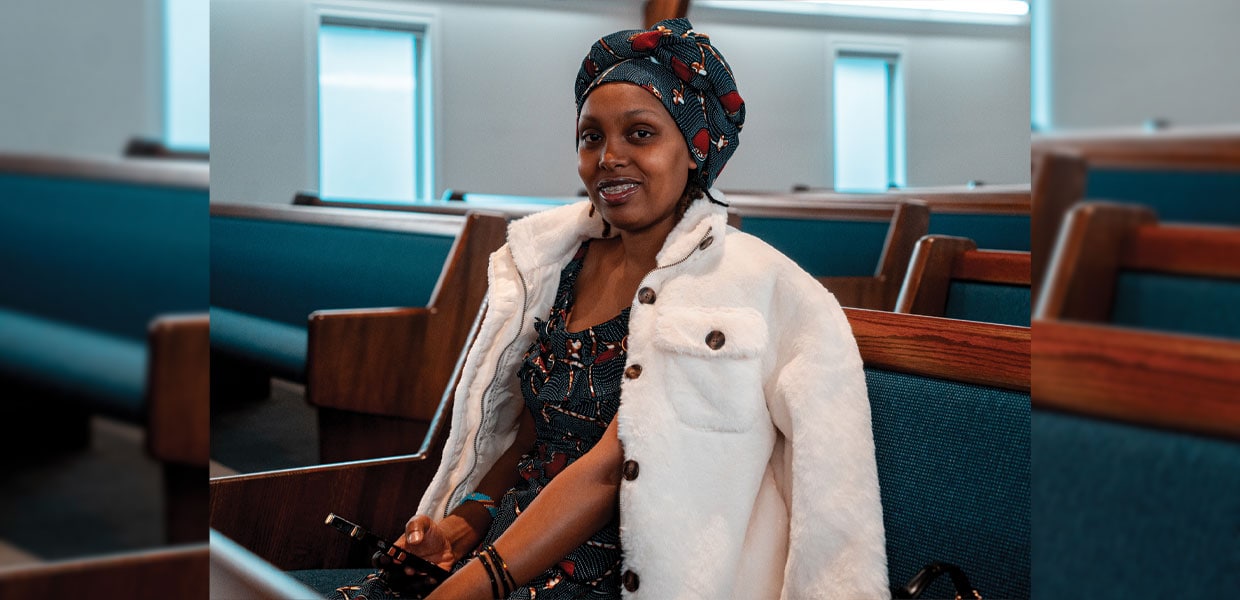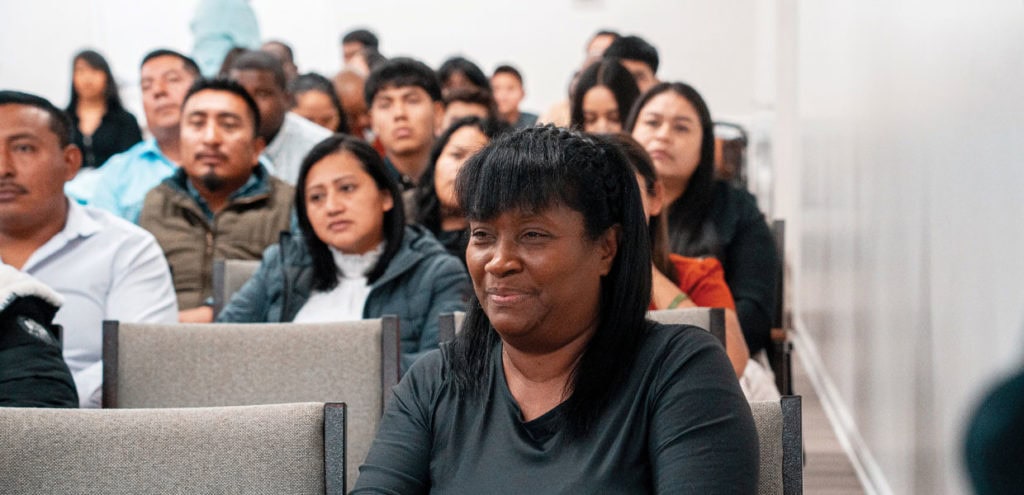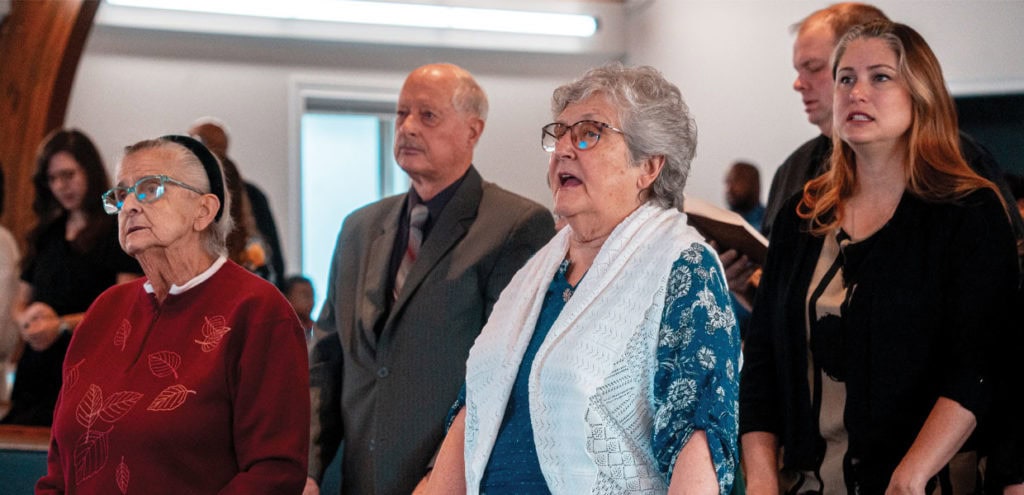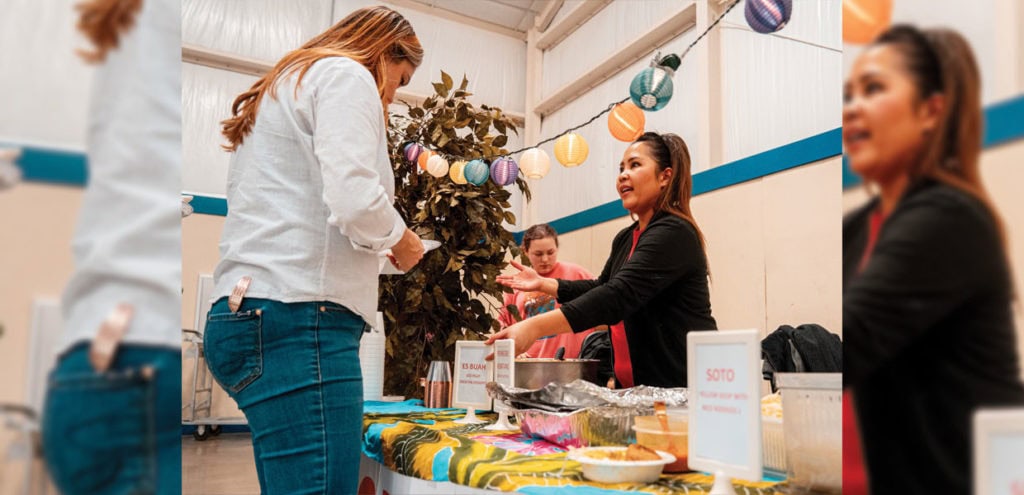
Claude Hakizimanh moved to Bowling Green, Kentucky, United States, as a Rwandan refugee back in 2019 and found a spiritual community in the Bowling Green Seventh-day Adventist Church.
As he connected with other African families in the congregation, a language barrier became apparent to him during the English services. Hakizimanh, fluent in English, took it upon himself to translate the services for his friends who were not so fluent. Yet, he sensed a deeper need—a longing for spiritual connection in their own language.
So, the group, composed of three families, met with the Bowling Green church board and presented their idea to start a Kinyarwanda group. The group would still be a part of the Bowling Green church, but they would hold separate services in their native language. The Bowling Green church board was happy to accommodate their needs, and by July 2023, the Kinyarwanda group had begun meeting on Saturday (Sabbath) afternoons.
According to the Immigration Research Initiative, Kentucky ranks fourth among the U.S. states for the number of refugees it receives per capita. Within Bowling Green’s population of more than 70,000 residents, a remarkable 15 percent were born in another country. As a result, the Bowling Green Adventist church, whose membership is represented by more than 17 different nations, has found unity in its diversity.
Three Groups in One Sanctuary
“We have three different congregations meeting on a Sabbath, all under the umbrella of one church,” Trey Sharp, Bowling Green pastor, said. “There is the English congregation, the Spanish congregation, and the Kinyarwanda group. While I was born and raised in Kentucky, I’ve only been back in Bowling Green for about two and a half years. Seeing how Bowling Green has evolved [and] how churches have changed is really neat because you get to see how God is working.”
Once a month, the three groups come together for a church potluck. Every three months, they share a joint worship session, dividing the program time equally among their three main languages: English, Spanish, and Kinyarwanda.



“[This experience] has brought so many blessings to our group,” Jehu Diaz, head elder for the Bowling Green Hispanic group, said. “It doesn’t matter what language you speak; we are all worshipping the same God. We all get to embrace and wish each other a happy Sabbath.”
The Hispanic group at Bowling Green church started meeting in the early 2000s. While attendance has varied over the years, they’ve recently been experiencing steady growth, with about 35 members. Their goal is to eventually become an independent church, a goal fully supported by the English group.
Past Triumphs, Future Plans
A similar journey took place for Bowling Green Zomi Church 10 years ago. Like the Hispanic group, they started gathering within the Bowling Green church, and in 2019 gained their own church status. The Zomi group now boasts 80 baptized members and has an average attendance of more than 150 people.
“If God is using the English church to help support these ministries, then it is an honor to do so,” Sharp said. “If we can help all these groups graduate to church status, that would be amazing, because now all of a sudden we’re going to have a handful of different Adventist churches in the Bowling Green area.”
When the Kinyarwanda group began meeting last year, they only had about 10 people attending their worship service. Within eight months, their attendance doubled and now includes guests who, while Christians, are not members of the Adventist Church.
“We are refugees and displaced people,” Hakizimanh said. “Being able to worship God in your own language is such a blessing. It brings us hope, and it heals wounds. We feel loved and supported in many ways, and when we gather [with the other groups] and share a meal and a smile, we get a picture of what heaven will be like.”
The original version of this story was posted by Southern Tidings.